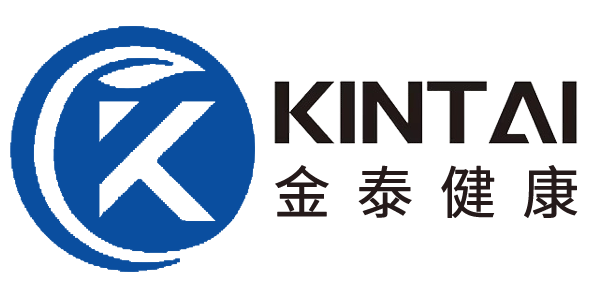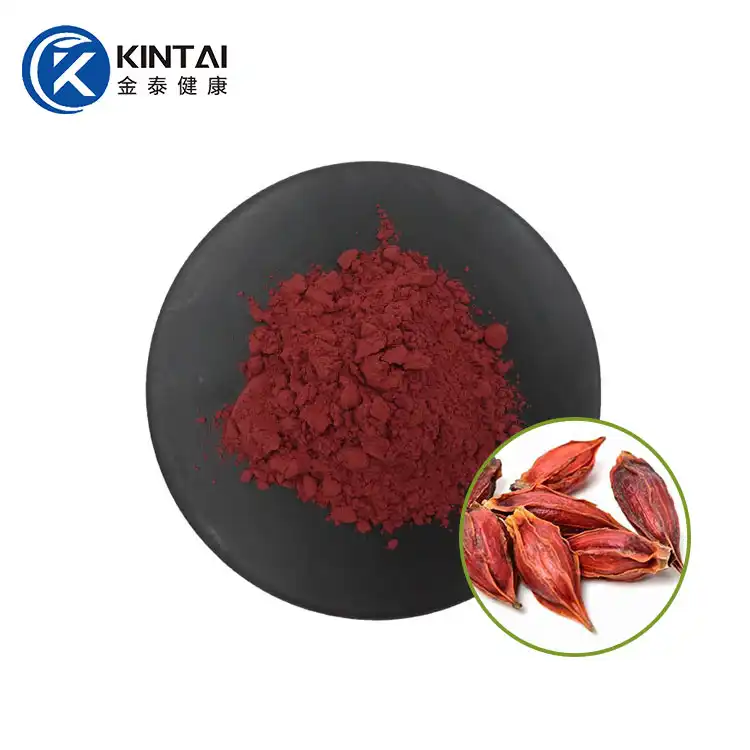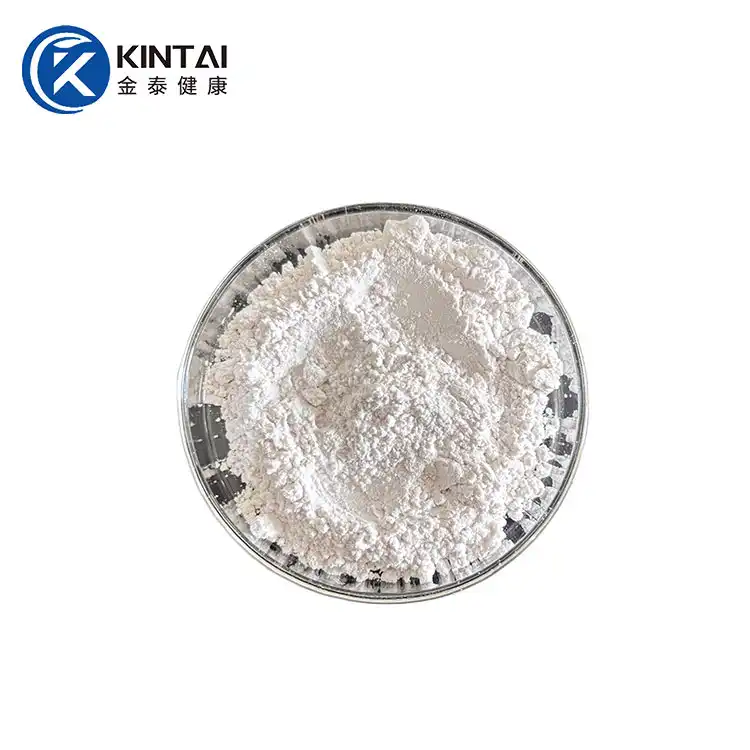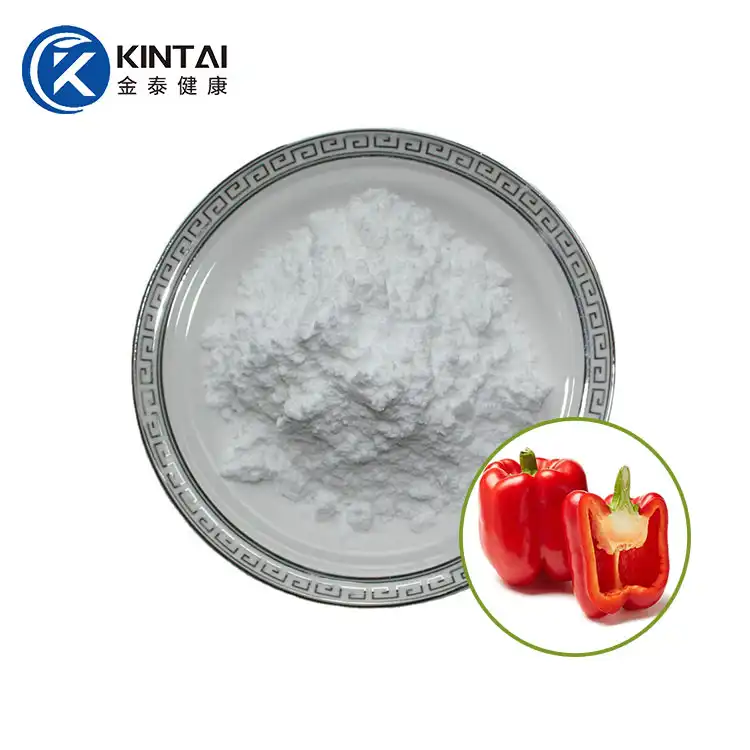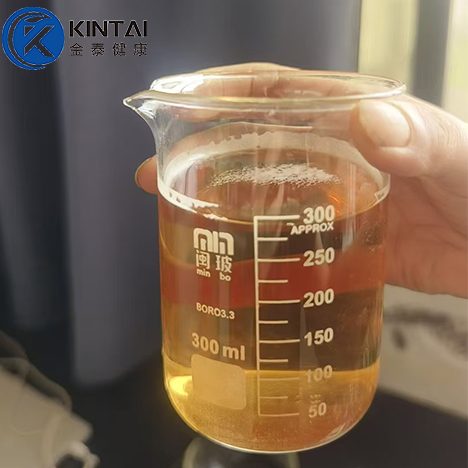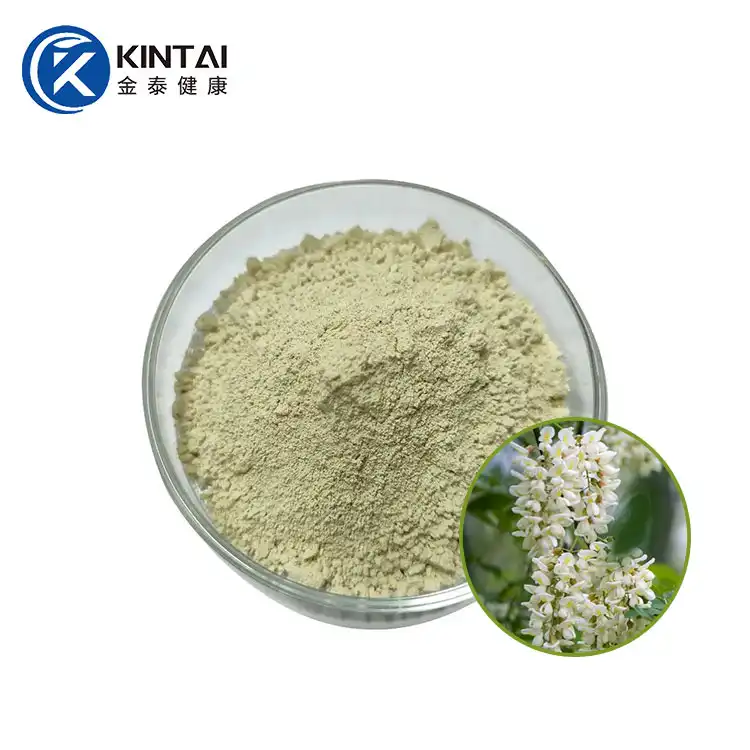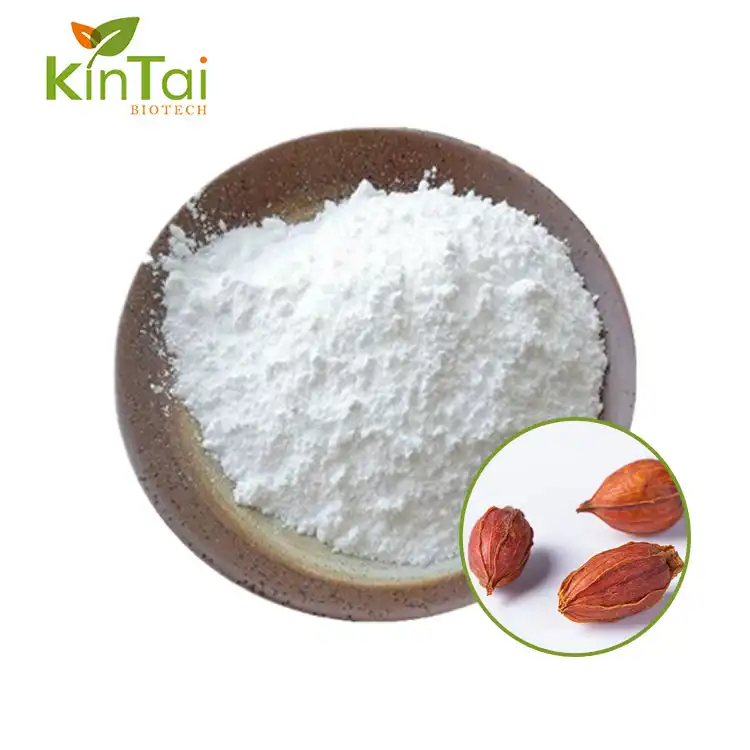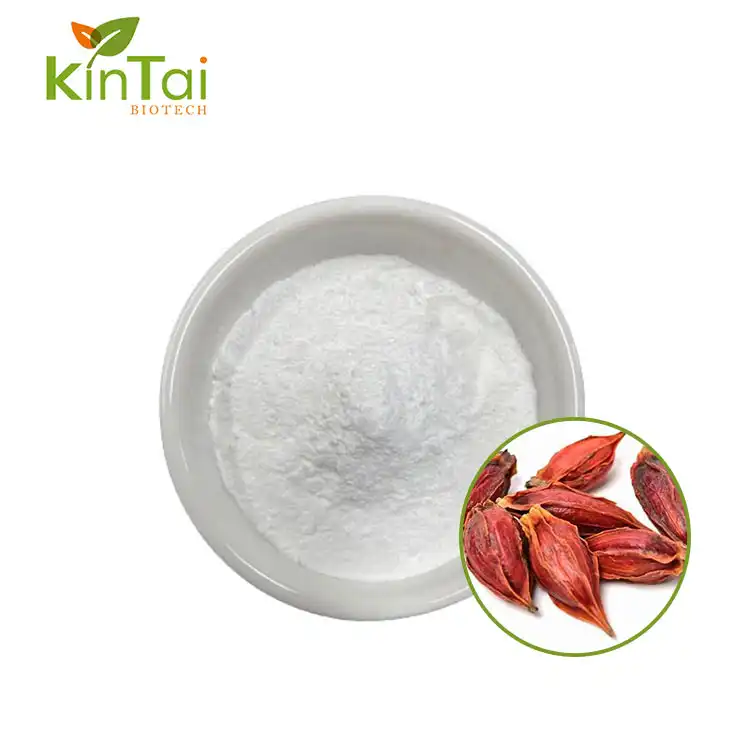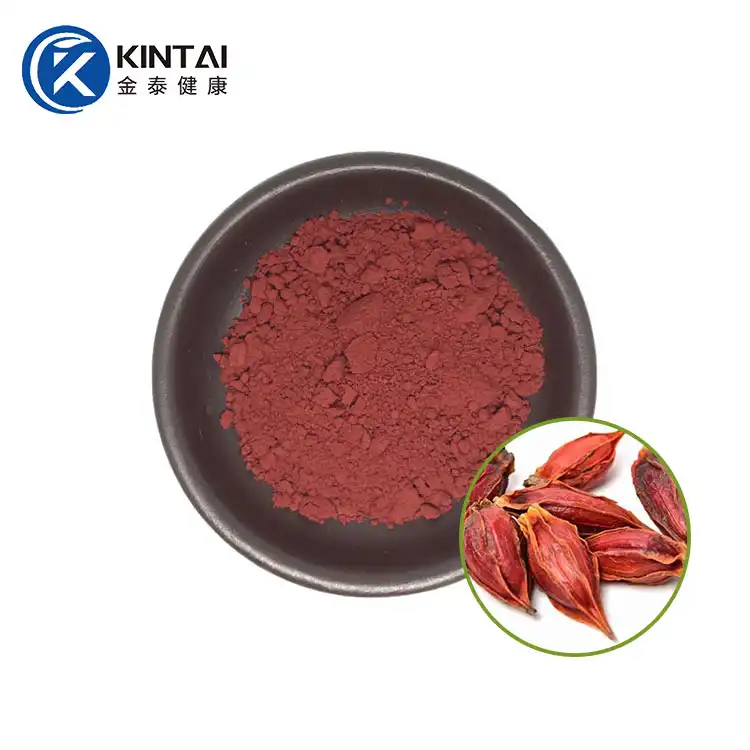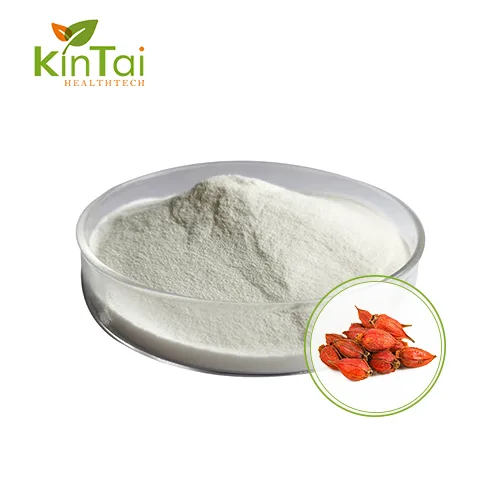Gardenia Fruit Extract
CAS No: 42553-65-1; 6902-77-8; 24512-63-8
Specification: 10%~50% Crocin; 98% Genipin; 10%~98% Geniposide
Appearance: White to dark red powder
Test Method: HPLC/UV
Lead time: 1-3 days
Storage: cool, dry place and avoid light
Shelf Life: 2 years
MOQ: 1KG
Sample: Free sample available
Certifications: GMP, ISO9001:2016, ISO22000:2006, HACCP, KOSHER and HALAL
Advantages: 100,000-level clean production workshop; Non-additive, Non-GMO, radiation-qualified product.
- Fast Delievery
- Quality Assurance
- 24/7 Customer Service
Product Introduction
What is Gardenia Fruit Extract?
A variety of effective ingredients can be separated and extracted from Gardenia fruit extract, and are widely used in the production of food colorants, Chinese patent medicines or health products. Its chemical components mainly include iridoids, monoterpenoid glycosides, diterpenoids, triterpenoids, volatile oils, organic acid esters, flavonoids, polysaccharides and trace elements. The main ingredients in the peel are gardenia glycoside, deacetylated methyl oxalate and crocin I, while the main ingredients in the kernel are gardenia glycoside, genipin gentiobioside and crocin I.
Xi'an Kintai Biotechnology Co., Ltd. is a technological innovation enterprise specializing in the research, development, production and operation of plant (traditional Chinese medicine) extracts such as pharmaceutical raw material intermediates, health food raw materials, medicinal and edible plant extracts, daily cosmetic raw materials and concentrates, and feed additives. You can contact us to place an order directly.

Chemical Constituents of Gardenia Fruit Extract
1. Terpene components
Terpenoids extracted and separated from Gardenia include iridoids, monoterpenes, diterpenes, triterpenes, etc.
Iridoids include 4 major types, iridoid alkanes, iridoid glycosides, iridoid diacetal esters, and cleo-iridoid glycosides. And all of them have great medicinal value. More than half of the commercially available Gardenia reference substances are iridoid glycosides. Gardenia glycoside, as an iridoid component, is both a quality control indicator component and a representative of active ingredients.
2. Organic acid esters
The organic acids in Gardenia fruit extract are esters formed by phenylpropionic acid derivatives and quinic acid, such as chlorogenic acid (3-caffeoylquinic acid), cryptochlorogenic acid (4-caffeoylquinic acid), neochlorogenic acid (5-caffeoylquinic acid), isochlorogenic acid A (3,5-dicaffeoylquinic acid), isochlorogenic acid B (3,4-dicaffeoylquinic acid), isochlorogenic acid (4,5-dicaffeoylquinic acid), and quercetin-3-rutinoside.
3. Other components
In addition to the above components, gardenia also has functional components such as volatile oils, polysaccharides, flavonoids, and polyphenols. The mass fraction of polysaccharides in gardenia fruit is about 3%, the mass fraction of flavonoids is about 3.23%, and the mass fraction of polyphenols is about 1.70%.

Pharmacological Effects of Gardenia Fruit Extract
1. Effects on the digestive system
(1) Liver protection: Gardenia can reduce liver damage caused by CCl4, reduce degeneration and necrosis of liver cells, and restore the content of glycogen and RNA accumulated in liver cells. Intragastric administration of Gardenia can reduce or restore the elevated alanine aminotransferase and bilirubin diphosphate-glucuronyltransferase activities in animals with ligated common bile duct, and increase the reduced liver diphosphate-glucose dehydrogenase activity.
(2) Effects on bile secretion, excretion and metabolism: Gardenia has a choleretic effect. Its alcohol extract and crocin, crocetin and geniposide can increase bile secretion. When people take Gardenia decoction, the gallbladder can be significantly contracted, which promotes bile excretion. Gardenia water and alcohol extract can reduce the bilirubin content in the blood of rabbits with ligated common bile duct, and seem to promote bilirubin metabolism.
(3) Effects on gastric juice secretion and gastrointestinal motility: Intraduodenal administration of geniposide can reduce gastric juice secretion in rats with pyloric ligation. Intravenous injection of dehydroxygariposide or geniposide can inhibit spontaneous gastric motility and pilocarpine-induced gastric contraction in rats. Gardenia alcohol extract can stimulate small intestinal motility in rats and rabbits.
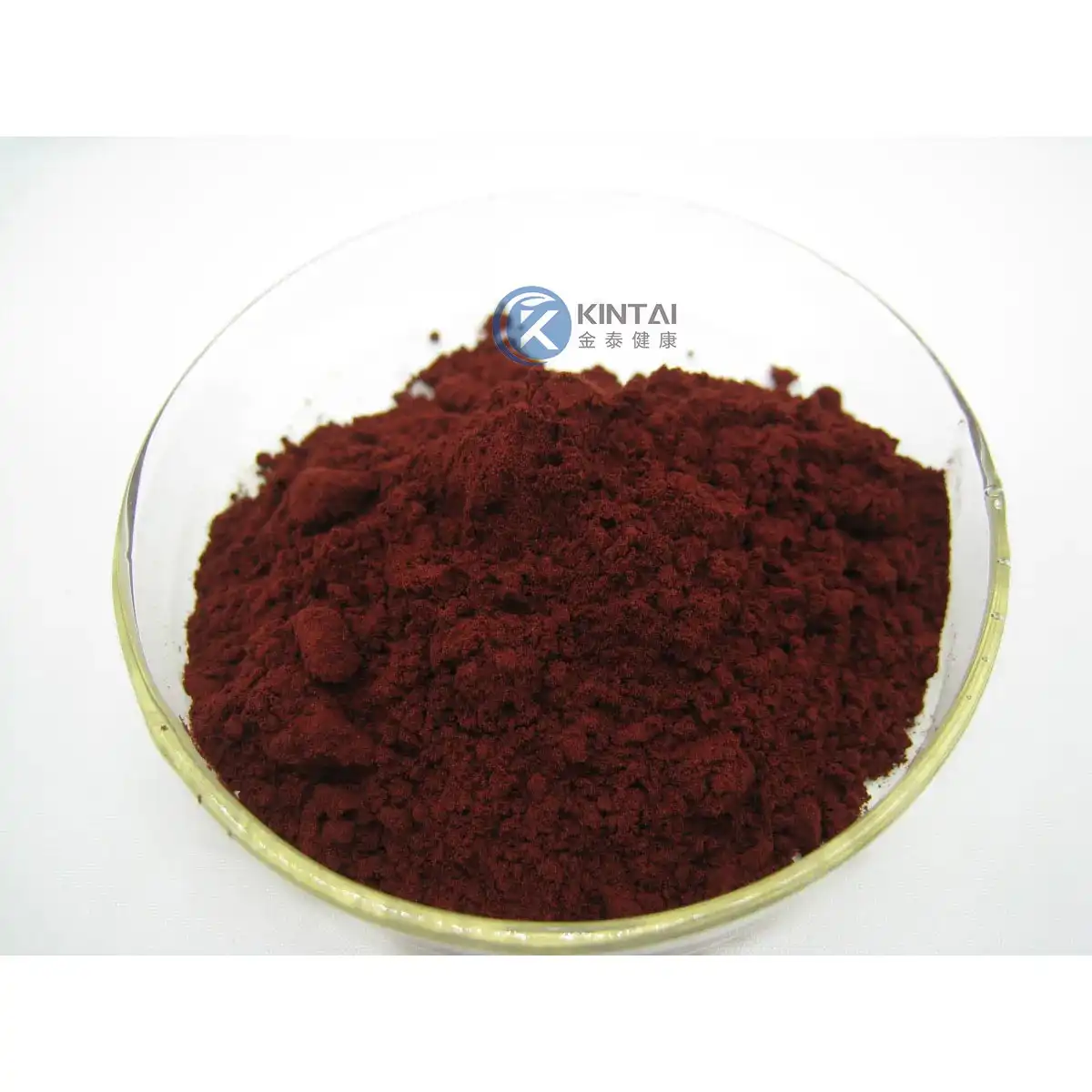
2. Effects on the central nervous system
Intraperitoneal injection of gardenia fruit extract into mice can reduce spontaneous activity and has a sedative effect. It also has a synergistic effect with sodium cyclohexylbarbital, which can prolong sleep time and reduce body temperature. Gardenia water extract, dehydroxygardenia glycoside and geniposide can inhibit the acetic acid writhing reaction of mice, so they are considered to have analgesic effects.
3. Effects on the cardiovascular system
Gardenia decoction and alcohol extract have a hypotensive effect on anesthetized or unanesthetized cats, rabbits and rats, whether administered orally or intravenously. Gardenia extract can reduce myocardial contractility. Gardenia decoction can slow down the heart rate and dilate blood vessels.
4. Anti-inflammatory effect
Gardenia extract can significantly inhibit the swelling of the mouse ear shell caused by xylene and the swelling of the foot caused by formaldehyde. At the same time, it has a significant therapeutic effect on soft tissue injuries in mice and rabbits.
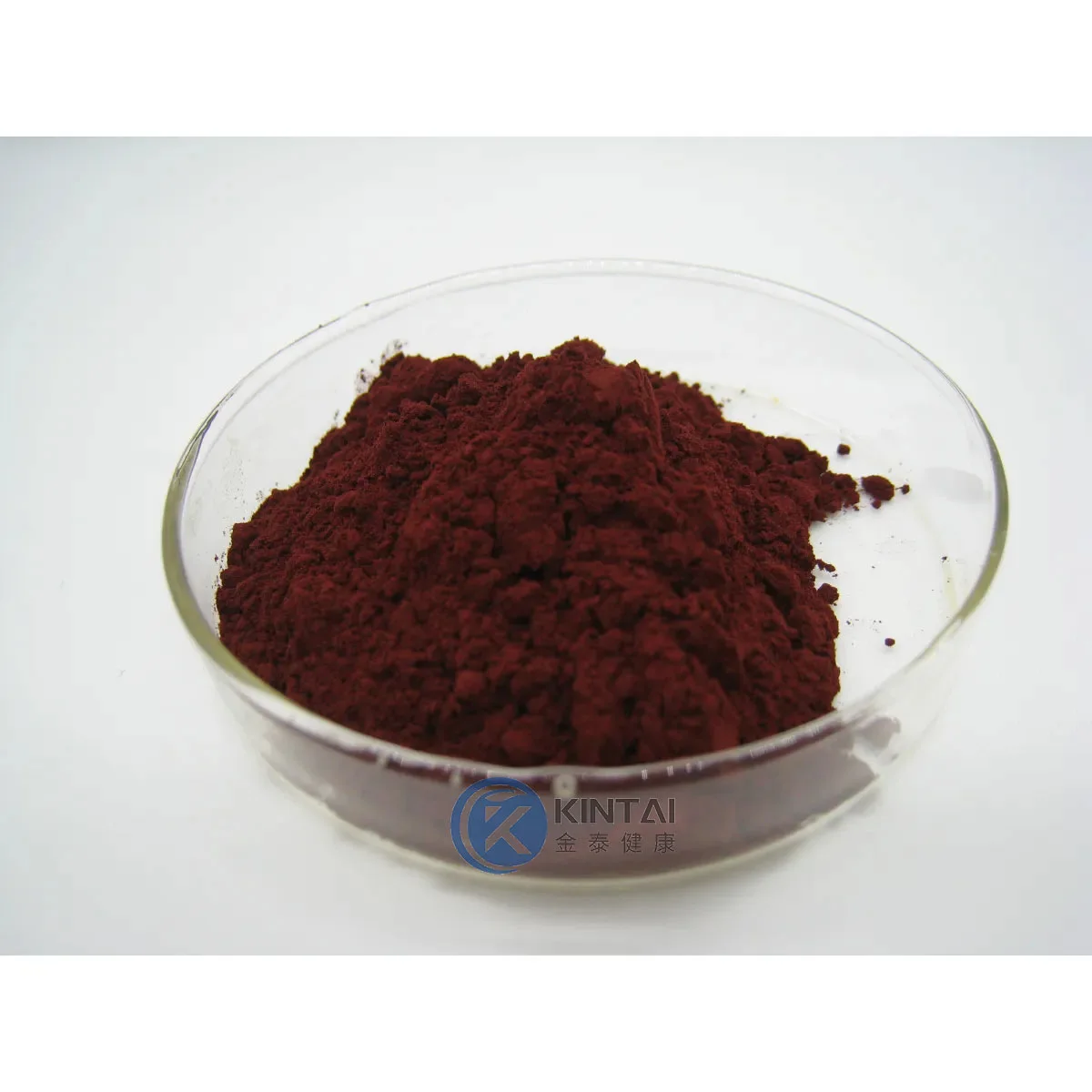
5. Antibacterial effect
Gardenia has an inhibitory effect on Staphylococcus aureus, Neisseria meningitidis, and Catarrhalis. Gardenia water extract has an inhibitory effect on many fungi in vitro. The decoction has the effect of killing Leptospira and Schistosoma japonicum adults.
6. Other effects
Gardenia can restore the blood flow of the pancreas, liver, stomach, and small intestine in the early stage of pancreatitis, among which the recovery of pancreatic blood flow is the most obvious. Gardenia can slow down the ATP decomposition and energy release process in mouse red blood cells, resulting in insufficient energy supply.
Applications of Gardenia Fruit Extract
1. Food industry
Gardenia fruit extract is mainly used for coloring flour products. In recent years, gardenia yellow pigment has been widely used in candy, honey money, ice cream and other foods due to its good dyeing ability for protein and starch. It has excellent dyeing ability for protein, starch, etc., and can be widely used in various foods such as cakes, candy, flour, beverages, jelly, biscuits, ice cream, etc.
2. Printing and dyeing industry
It has been used as a natural dye for more than two thousand years. Gardenia extract can be used for dyeing silk and nylon fabrics
3. Cosmetics industry
Gardenia extract has the conditions for application in the cosmetics industry.
4. Pharmaceutical industry
In addition to containing pigment components for coloring, gardenia extract also contains certain high medical value and expensive crocetin and gardenia glycosides such as blood-regulating, blood-activating, blood-stasis-removing, analgesic, and blood pressure-lowering, which can be applied to the pharmaceutical industry.

FAQ
Q: What are the main ingredients of Gardenia Fruit Extract?
A: The main active ingredients include Gardenia glycosides, crocin, chlorogenic acid, etc., which have antioxidant, anti-inflammatory and metabolic regulation effects.
Q: Is it suitable for vegetarians or people with allergies?
A: This product is a plant extract and is suitable for vegetarians. However, people who are allergic to plants in the Gardenia family should avoid using it.
Q: How pure is your extract? Is it certified?
A: We provide high-purity Gardenia extracts and have passed ISO, HACCP, and HALAL certifications, and provide COA test reports.
Certifications
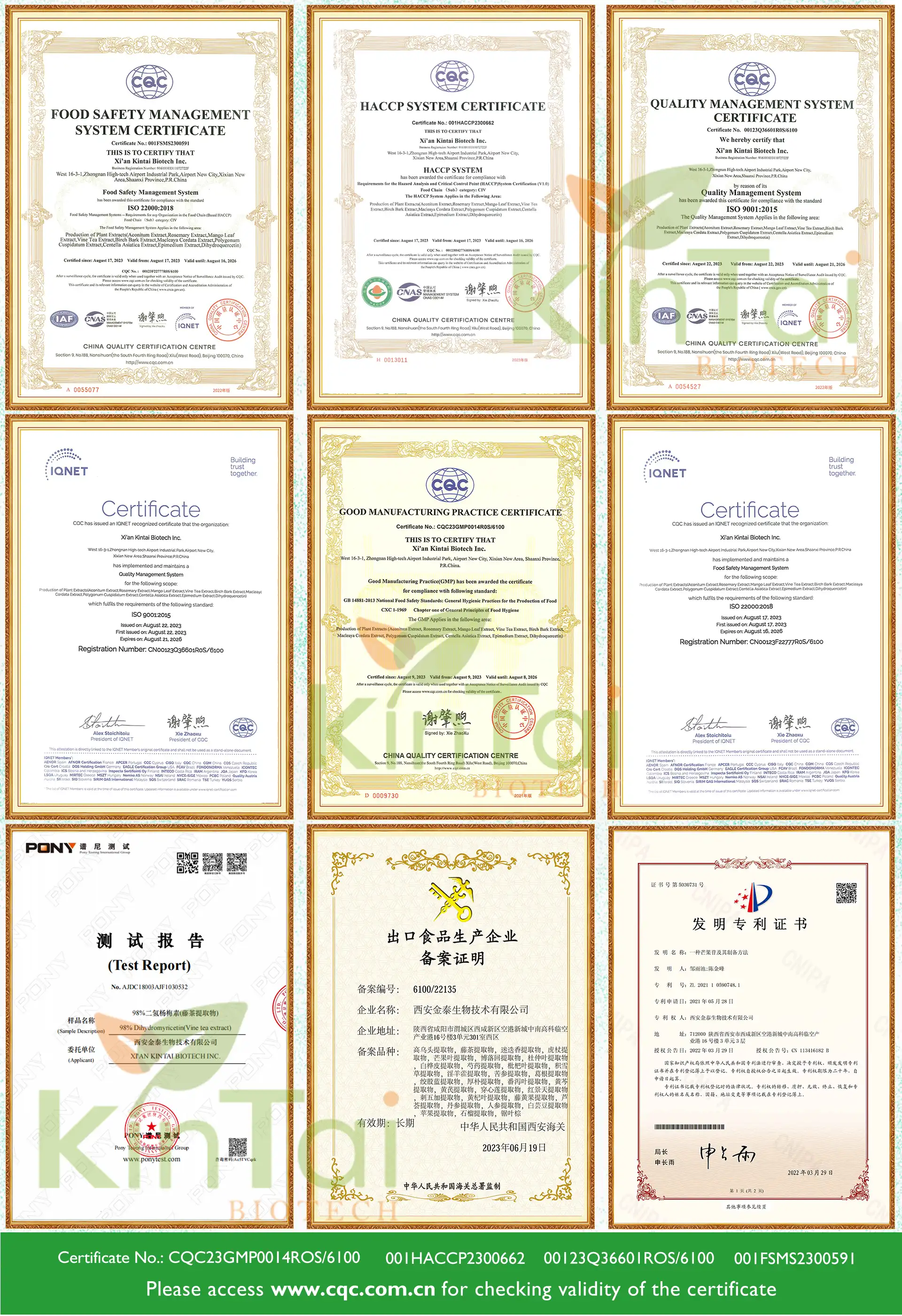
About KINTAI

Packing And Shipping

Hot Tags: Gardenia Fruit Extract, Crocin, Genipin, Gardenia, Geniposide, Gardenia Fruit, Crocetin, Gardenia Fruit Extract Suppliers
Send Inquiry
